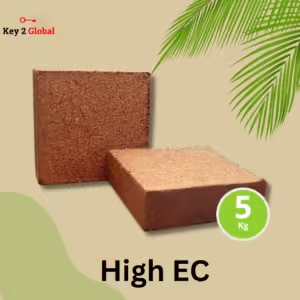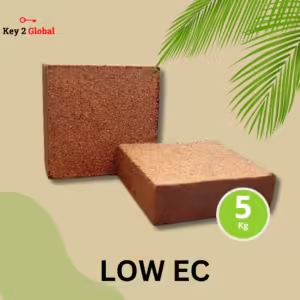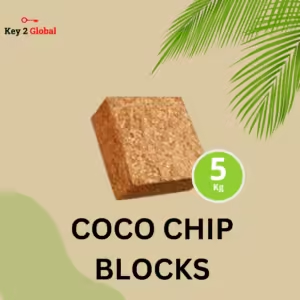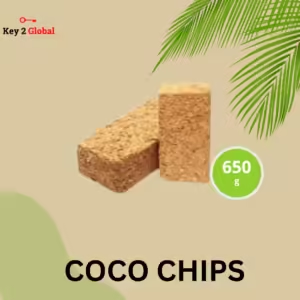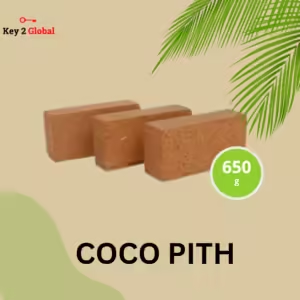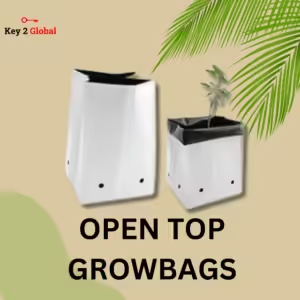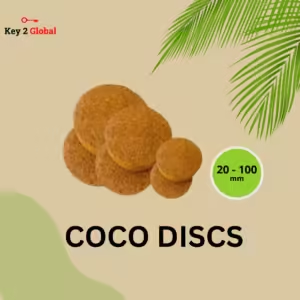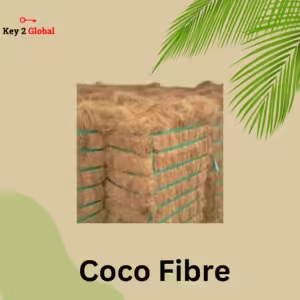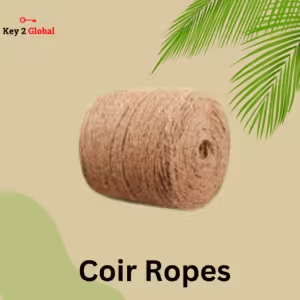ABOUT OUR COCOPEAT EXPORTS
At Key2Global Exim, we are proud to export our premium-quality cocopeat products to major markets across the globe, including the United States, Europe, the Middle East, and South Asian countries. Our commitment to providing sustainable agricultural solutions is reflected in the high standards of our cocopeat, sourced directly from our factory and made from coconut husks. This natural, biodegradable growing medium enriches soil health, conserves water, and supports eco-friendly farming practices.
By offering high-quality cocopeat straight from the source, we ensure consistent quality and affordability for agricultural businesses in these regions. Cocopeat is widely used as a soil conditioner in gardening and agriculture for its excellent water retention and aeration properties. It also serves as a sustainable growing medium for hydroponics and seed starting, promoting healthy plant growth across diverse agricultural practices.
OUR INFRASTRUCTURE
QUALITY CONTROL
At Key2Global Exim, we prioritize the quality and consistency of our cocopeat products throughout the packing process. To ensure that our products meet the highest standards, we implement rigorous quality control measures, including:
- Moisture Check: We conduct thorough moisture assessments to ensure that our cocopeat maintains optimal hydration levels. This is crucial for preserving its quality and effectiveness as a growing medium.
- pH Testing: Our team performs pH tests to confirm that the cocopeat is within the ideal range for plant growth. Maintaining the correct pH level is essential for nutrient availability and overall plant health.
- Electrical Conductivity (EC) Check: We measure the electrical conductivity of our cocopeat to evaluate its salinity levels. This helps us ensure that our product is free from harmful salt concentrations that could adversely affect plant growth.
By incorporating these quality control checks into our packing process, we guarantee that our cocopeat products are not only effective but also safe for use in various agricultural applications. This commitment to quality allows us to provide sustainable solutions that support eco-friendly farming practices worldwide. This version highlights the specific quality control measures taken during the packing of cocopeat products at Key2Global Exim.
PACKAGING & LOGISTICS
- Cocopeat is typically compressed into blocks for shipping. This reduces volume and makes handling easier.
- Common packaging sizes include 650 Gms, 1 kg or 5 Kg. Majorly 5kg Blocks are getting exported
- The most commonly used pallet size is 120 cm x 100 cm (Euro pallet):
- Shrink Wrapping: Pallets are often wrapped in plastic film to secure the bales and protect them from moisture and damage during transit.
- Strapping: Additional strapping may be used to further stabilize the load and prevent shifting during transport.
- Each pallet should have clear labeling that includes: Product description (e.g., cocopeat), Weight, Supplier information ,Handling instructions (e.g., keep dry)
- Moisture Control: Since cocopeat is hygroscopic (absorbs moisture), it is essential to ensure that it is kept dry during transport to prevent mold growth
- Temperature Control: While not typically temperature-sensitive, extreme heat can affect the quality of cocopeat, so appropriate measures should be taken during shipping.
15-20 days: Jeddah, Saudi Arabia, Dammam, Saudi Arabia, Kuwait City, Kuwait, Muscat, Oman
20-25 days: Busan, South Korea, Incheon, South Korea, Gwangyang, South Korea
25-30 days: Rotterdam, Netherlands, Hamburg, Germany, Antwerp, Belgium, Le Havre, France, Sydney, Australia, Melbourne, Australia, Brisbane, Australia
30-35 days: Genoa, Italy, Barcelona, Spain, London, UK, Los Angeles, USA, New York, USA, Chicago, USA, Houston, USA
30-35 days: Perth, Australia
DOCUMENTATION
To ensure a smooth customs clearance process, the following documents must be prepared and provided by Key2Global Exim:
- Bill of Lading: A document issued by the shipping company acknowledging receipt of goods for transport.
- Commercial Invoice: A detailed invoice from the seller to the buyer, outlining the transaction specifics, including product descriptions and prices.
- Packing List: A comprehensive list detailing the contents of the shipment, including weights and dimensions of each package.
- Phytosanitary Certificate: Required for agricultural products to certify that they are free from pests and diseases.
- Fumigative Certificate: This certificate verifies that the goods have been treated to eliminate pests and is often required for the export of certain agricultural products.

